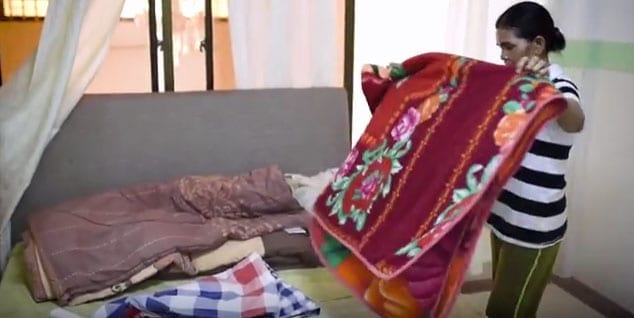Lack of job protections, combined with the invisibility of their work, means many domestic workers toil long hours in unsafe conditions without a minimum wage or access to health care, sick leave or pensions. In Cambodia, domestic workers, who are not recognized as workers under national labor law or protected by Association of Southeast Asian Nations ASEAN) agreements, are pushing their government to guarantee minimum labor standards.
Nearly 100 domestic workers rallied recently in Phnom Penh in support of International Labor Organization (ILO) Convention 189 on Decent Work for Domestic Workers. The convention, which mandates regular working hours, fair pay and access to social benefit programs, is an important international standard for domestic workers who seek decent work. The Association of Cambodian Domestic Workers (ACDW), the Cambodian Domestic Workers Network (CDWN) and the Solidarity Center jointly organized the event to celebrate International Domestic Workers’ Day on June 16.
The domestic workers’ unions also have debuted a documentary that examines issues arising from domestic workers’ precarious job status, with workers telling their own stories. For example, Hang Sothea, 47 and divorced, is the mother of eight children. To support her family, she has cleaned houses since 2010, working 180 hours for two employers each month—for a total wage of $170.
In contrast, the minimum wage for Cambodia’s garment workers is $153 a month, and the law limits working hours to 48 a week.
Another domestic worker featured in the video, Sok Rathana, 19, has been working as a domestic worker for two years while she attends high school. Explaining how she followed her mother into the profession she says: “I think I’m not good enough to do other jobs, but I can do most of the house work.” Rathana receives $70 a month for her work.
A recent survey of Cambodian domestic workers underscores how lack of legal protection can lead to exploitation for domestic workers. Of the 600 workers interviewed, 60 percent make less than $50 a month and 83 percent report being uninsured. Many say they are forced to work overtime. Even among workers who report having asked for overtime, 18 percent say they never received compensation for those hours. The nonprofit Center for Policy Studies conducted the survey, with Solidarity Center support.
Through organizations like ACDW, CDWN and the International Domestic Workers Federation (IDWF), which coordinates domestic workers globally to push for passage of Convention 189, Cambodian domestic workers have been petitioning the government for formal recognition of their rights. They say ratification of Convention 189 is a necessary first step toward covering the gaps in Cambodia labor laws and regional agreements that have deprived domestic workers of their worker rights.

